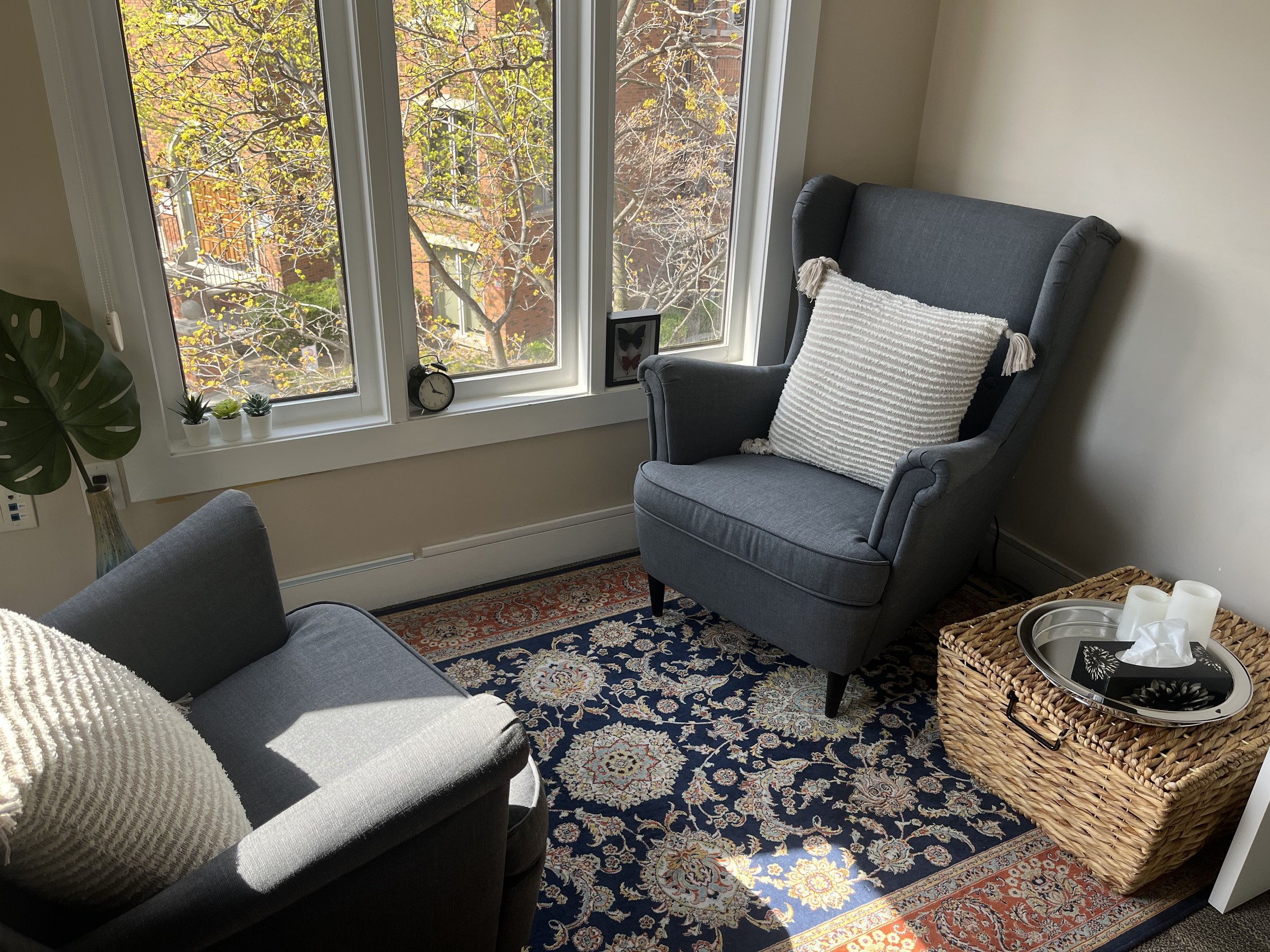COLLABOATIVE THERAPY
Grief & Loss Therapy
You are not alone. Our therapist is here to guide you every step of the way so you can live a fulfilling and meaningful life.
How can Grief and Loss Counseling help you:
Develop Emotional Insight
Enhance Coping Strategies
Begin to Feel at Peace
Grief and Loss Counseling in Mississauga
Understanding Grief and Loss
Grief doesn’t follow a straight line—and it doesn’t have an expiry date. Whether you’re mourning the loss of a loved one, a relationship, a life transition, or even a version of yourself, grief can show up in unexpected ways. At Collaborative Therapy, we offer gentle, supportive psychotherapy in Mississauga and online therapy in Mississauga to help you process loss at your own pace. You're not expected to “move on”—but you deserve a space to move through it with support and understanding. Grief can be deeply personal, but you don’t have to carry it alone.
Signs you Might be Struggling with Grief
Difficulty sleeping or frequent fatigue despite rest
Persistent worry or racing thoughts
Physical symptoms like headaches, muscle tension, or stomach issues
Feeling overwhelmed, irritable, or on edge most days
Avoiding social situations or responsibilities due to fear or panic
Trouble concentrating or making decisions
Increased use of substances (like alcohol or cannabis) to cope
Panic attacks or a constant sense of dread
Feeling emotionally disconnected or numb
These signs are often your system’s way of saying it’s time to pause and care for your inner world. Support like stress and anxiety counseling or cognitive behavioral therapy in Mississauga can offer relief and real tools for healing.
Types of Grief and Loss We Support
Death of a loved one
Pregnancy or infant loss
Breakups, separation, or divorce
Loss of identity, career, or health
Family estrangement or disconnection
Collective grief or global events
Unacknowledged or complicated grief
Our team provides psychotherapy services in Mississauga and online, so you can access the support you need in a format that works best for you.
What to Expect in Therapy
In our sessions, we begin by creating a space that’s safe to grieve—no expectations, no pressure. Whether you prefer family therapy in Mississauga to process loss together, or one-on-one sessions to reflect individually, our approach is grounded in empathy and presence. We support you in exploring the emotional impact of your loss and gently work toward healing at your own pace. As your needs evolve, so does your therapy—flexible and responsive to where you are in your journey. Through psychotherapy services in Mississauga, we help you honor your grief while rediscovering hope and connection.
Why Collaborative Therapy?
We believe grief requires more than just coping—it needs care, connection, and compassion.
We take the time to get to know your story and what this loss has meant to you.
We collaborate with you to develop a path forward that feels supportive and manageable.
Whether through individual or online therapy in Mississauga, we walk beside you as you heal, one step at a time.
Therapies that Help with Grief and Loss
-
CBT is a structured, goal-oriented approach that helps individuals identify and reframe negative thought patterns related to their grief. By challenging distorted thinking, clients can develop healthier coping strategies that allow them to respond to their grief more adaptively. This therapy empowers individuals to regain a sense of control, fostering resilience and renewed hope.
-
MBSR integrates mindfulness meditation and yoga to foster present-moment awareness and self-acceptance. Through this practice, individuals can learn to observe their grief without judgment, allowing for greater emotional regulation and clarity. By cultivating mindfulness, clients can reduce overwhelming feelings and discover peace within the chaos of their emotions.
-
Somatic experiencing focuses on the connection between the body and the mind, helping individuals process the physical sensations associated with grief. This body-oriented approach encourages clients to notice and release stored tension, promoting healing from traumatic experiences and emotional pain. By addressing the physical aspects of grief, clients can find a sense of safety and integration.
-
Narrative therapy provides a framework for clients to explore and reconstruct their personal stories surrounding loss. By reauthoring their narratives, individuals can find meaning in their experiences and redefine their identity beyond their grief. This process empowers clients to view their experiences from a new perspective, facilitating healing and a sense of purpose.
-
ACT teaches clients to accept their thoughts and emotions rather than trying to suppress or avoid them. This approach emphasizes identifying personal values and committing to actions that align with those values, even in the presence of grief. By fostering acceptance, individuals can create a fulfilling life, allowing their experiences of loss to coexist with a renewed sense of purpose.
-
CFT focuses on cultivating self-compassion as a means to navigate grief and reduce self-criticism. This approach helps individuals develop a nurturing inner dialogue and promote emotional healing through kindness toward themselves. By embracing compassion, clients can better cope with their pain and foster a greater sense of connection to themselves and others.







